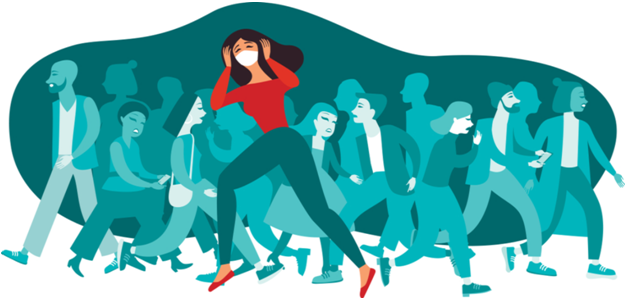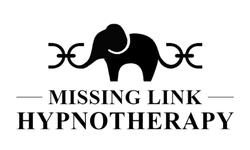Covid Anxiety Syndrome

Category: Uncategorized
- 24 Jan 2022
- Posted By WebSiteAdmin
WHAT IS COVID ANXIETY SYNDROME?
When people are on a prolonged high state of alert, this can cause detrimental emotional and physical consequences. Despite Covid safety policies, many people feel less safe and much more anxious. Experts are now calling this anxiety “Covid Anxiety Syndrome.”
Although Covid Anxiety Syndrome is very common, the good news is that it can be successfully treated.
Covid Anxiety Syndrome is caused by high levels of exposure to news and social media. There is often a disruption of normal routines caused by restrictions, isolation, uncertainties, mandates, and lockdowns. The anxiety can also result from a loss of income and fear of Covid or the vaccination.
These factors can lead to anxiety, worry, fear, depression, insomnia, and anxiety. This anxiety can lead to elevated levels of cortisol, high blood pressure, heart attacks, strokes, and according to many studies can also lead to diabetes high cholesterol levels, chronic inflammation and related pain, exacerbation of irritable bowel syndrome (IBS), poor libido, erectile dysfunction, menstrual irregularities, weight gain, and a weakened immune function. All these factors can cause even more anxiety.
Although many people respond to Covid Anxiety Syndrome through increased alcohol consumption and drug use, these can exacerbate the anxiety and lead to worse emotional and medical conditions.
Covid Anxiety Syndrome Is Categorized By:
- Compulsively checking for Covid symptoms.
- Avoiding social situations or leaving the house.
- Symptoms like post-traumatic stress disorder (PTSD) and obsessive-compulsive disorder (OCD).
- Obsessive cleaning
Other Signs Of COVID Anxiety Syndrome Can Include:
- Trouble focusing on anything other than Covid.
- Anxiety interfering with daily life—including avoidance behaviors, poor concentration or irritability.
- Self-isolation when this is not mandated.
- Feelings of anger, worry, bitterness, or hopelessness about the virus or the government’s response.
- Headaches, stomach aches, diarrhea, or constipation.
Isn’t Anxiety A Normal Response To Covid?
Although some of these responses seem justified, you know they may not be normal when:
- Your responses are out of proportion to the potential risk.
- Your responses are much more exaggerated than those of others.
- People are concerned about your level of anxiety, anger, worry, or avoidance.
- News stories cause you to go into fight or flight mode.
- You go well beyond the call of duty to avoid people, places, and situations when it isn’t necessary.
- You have severe insomnia, changes in appetite, severe depression as a result of Covid.
Things You Can Do To Help Reduce Your Anxiety
- Stay mindful of your thoughts when exposed to social media, news articles and politically charged information. Consider doing your own research and limiting exposure to the media.
- Spend extra time doing self-care. Exercise, spend time in nature, take frequent breaks, and do things you enjoy as often as necessary.
- Organize your house to help organize and maintain clarity of mind.
- Engage in creative activities like creative writing, drawing, or playing with your children.
- Listen to music or the sounds of nature.
- Pray, meditate, or chant.
- Give thanks for all that you have.
- Read a good book, watch a funny movie.
- If symptoms persist or worsen, see your doctor.
- Consider undergoing hypnosis to help treat the root cause of anxiety.
How Can Hypnosis Help Covid Anxiety Syndrome?
Although the root cause of Covid Anxiety Syndrome seems to be Covid, the deeper treatable root cause is our emotional response to Covid.
Although we may not always be able to change what we experience, we can always change our emotional response to what we experience.
And just like someone could be hypnotized to cluck like a chicken when hearing the “chicken,” or eat an onion as though it tastes like an apple, someone can be hypnotized to experience Covid related news as though they are relaxing on the beach.
This is because, unlike other treatments which treat symptoms, hypnosis treats the unconscious mind from which our automatic responses are generated.
For more information about how hypnosis can help reduce anxiety, stress, depression, anger and worry, please click here.
Disclaimer: All information provided by Dr. Bloom is for educational purposes only. It is not intended to prevent, diagnose, treat, or cure any physical or emotional condition. Individual results may vary. No results are guaranteed.

